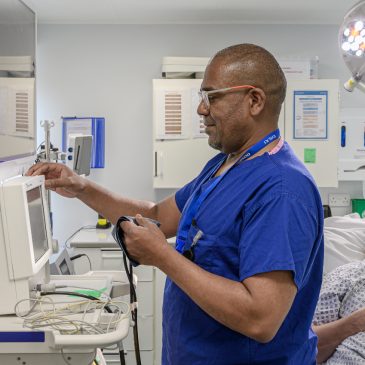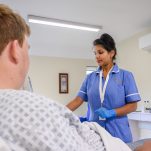When is a Colonoscopy Needed?
You may need a colonoscopy if you experience:
- Persistent changes in bowel habits (diarrhoea, constipation, or irregular movements)
- Unexplained abdominal pain or bloating
- Rectal bleeding or blood in the stool
- Unexplained weight loss
- Family history of bowel cancer
- Screening for colorectal cancer or polyps
Regular bowel screening is essential, particularly for individuals over 50 or those with a family history of colorectal conditions.
What to Expect During the Procedure
Our private colonoscopy procedure is designed for accuracy and patient comfort
- Preparation – You’ll be provided with a bowel preparation kit to clear your colon before the procedure.
- Sedation (Optional) – You may receive light sedation to ensure comfort during the procedure.
- Colonoscopy Procedure – The colonoscope is gently inserted through the rectum to examine the bowel lining.
- Biopsy & Polyp Removal – If necessary, polyps or tissue samples may be taken for further testing.
- Recovery – The procedure typically lasts 30-45 minutes, with a short observation period before you go home and rest.
Private Colonoscopy Fees
A colonoscopy at our Banbury hospital starts from £1,600. Before the procedure, a consultation with one of our specialists is required for a referral.
You can self-refer for a consultation with any of our consultants, with fees starting from £200. This includes a comprehensive assessment beyond just the referral.
To book a consultation, please complete the form below or contact us via the email link or phone number provided.
How to pay
You can pay for treatment through medical insurance, or directly.
For those with an insurance policy that covers colonoscopy (many do).
For people choosing to fund diagnosis and treatment themselves.
Combined Gastroscopy & Colonoscopy
If you are having problems throughout your digestive system, you may be advised to have a combined gastroscopy and colonoscopy. Both procedures are undertaken at the same time, helping your consultant to acquire a full understanding of your system.
Private Colonoscopy Without a GP Referral
At our private hospital, consultants can refer you for a colonoscopy, so no referral is needed from your own doctor, or GP.


